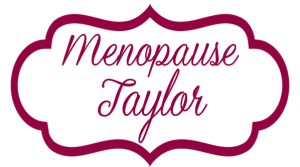Are You Losing Your Memory, or Losing Your Mind?
As you approach or progress through your menopausal transition, are you noticing that your mind just isn’t as sharp as it used to be?
Do you find yourself fishing for words? You know, that “tip-of-the-tongue” phenomenon when you know you know the word, but, for some odd reason you just can’t spit it out at the moment you need it.
Do you substitute “what’s his name,” or “whatchamacallit” for the missing word a lot? Or maybe your go-to substitute word is “jiggamabob.”
Do you forget what you were going to say just seconds before you planned to say it? And just a moment after you thought of it?
Do you forget why you went into a room?
What about misplacing things? Are your keys in your hand one minute and “lost” the next?
And how’s your general concentration?
One of the most common and frustrating symptoms of menopause is less-than-clear thinking. There are many names for this phenomenon, including “menofog,” “fuzzy thinking,” “cloudy thinking,” “forgetfulness,” “brain fog,” and the list goes on and on.
The women who have this describe it as an inability to think clearly. Their minds are not nearly as sharp as they were before they started their transition into menopause. They find it difficult to concentrate, difficult to grasp information quickly, and difficult to remember anything they did grasp. They worry about their performance at work. They make mistakes that they never made before.
So, what’s going on when you have this early symptom of menopause? Is it just a temporary, almost laughable, matter? Or is it something more than that? Are you losing your memory or are you losing your mind?
Estrogen loss is at the root of everything that happens at menopause: all the symptoms, and all the diseases.
I liken menopause to a tree. The trunk of the tree is estrogen deficiency. Each branch of the tree is a consequence of estrogen deficiency. And, boy, are there a lot of branches! There are three big diseases that result from estrogen deficiency: Heart Attack, Osteoporosis, and Alzheimer’s Disease. And there are 22 symptoms of estrogen deficiency, involving every part of your body from your head to your toes. And one of those symptoms is the forgetfulness that makes you wonder if you’re losing your memory … or your mind.
One of the big overriding principles of estrogen loss at menopause is that estrogen was your fountain of youth. So, when you lose it, you start aging on the outside and on the inside.
Most of the symptoms represent aging on the outside. It’s the stuff you can see: Your skin gets dry and wrinkled; your hair falls out; your vagina gets really itchy; your urine leaks; your joints hurt; your sex drive plummets; your mood becomes more irritable; and on and on.
What you can’t see is the aging on the inside: Your heart arteries start to harden, your bone starts to disappear, and your brain starts to shrink. The problem is that you can’t feel any of these things. They’re silent until the big event when you have a heart attack, sustain a bone fracture, or receive a diagnosis of Alzheimer’s.
So, the big question is this: When you have these memory slips, are you losing your memory or losing your mind?
Well, I hate to tell you, but it’s both.
In the short term, you are losing your memory. But of course, you witness direct evidence of that.
But if you extrapolate that over the next 20, 30, or 40 years, you are actually losing your mind. Those memory lapses are your brain trying its best to give you a wake-up call. It’s screaming, “Hey, my estrogen receptors are empty up here. I can’t think without them. In fact, I can’t survive without them. They’re my fuel. Give me my fuel or else I will shrink and disappear.”
And, that’s precisely what’s happening to your brain: You’re losing it, literally and figuratively.
So, wake up! Pay attention to your brain’s cries for help. Do what you can to prevent losing it … both your memory and your mind.



